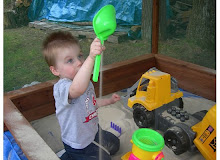We should not be duped by people who offer solutions, that do not pertain to all, due to various reasons such as climate, terrain, and other circumstances such as age. What applies to one person in one part of the world or country may be entirely ridiculous, in our part of the world.
Going green, people are doing various things, such as biking to work, often taking their lives into their hands. I imagine not all are fit enough to endure a 45 minute commute on a bike, especially in the dark, icy or on hilly conditions. It has been suggested that perhaps, you could bike to someones house and commute the rest of the way. Or, take a bus, train or other means of transportation. Where I live, we do not have options. Instead, most of us have more than one car. And, we are trying to be as efficient as possible, due to increasing gas prices.
Children no longer walk to school and are bused everywhere. Additional programs mean more dollars spent on transportation. Are we to give up safety? So much for " going green". Car pooling is not realistic when moms have early morning commutes. How many soccer moms are home today preparing the evening meal? Most parents are employed out of necessity. It's fast food, canned or microwaved food for dinner.
Then, there was talk of installing sun panels, have they ever been in New England in the winter? I have skylights which do not see much of the sun filtering into the house most of the time due to icing on the roof. Most people already keep their heat extremely low due to the cost of rising oil. We have all the modern conveniences yet, conserving finds some of us us in the cold and in the dark.
Windmills are great if you have wind, otherwise, that is a waste. We all have recycled for years now, and our small kitchens are full of "clean trash." So how are you doing with "green"? Do you grow your own vegetables, that is, if you have the time. Is your garden large enough to meet the need of your entire family? Do you have land to grow on, that's a start, many still rent here.
Conserving is the answer, and we are all responsible to do something. What that will be is determined by what you can, and are willing to do. Some people are drying their wash indoors. That's okay for jeans and linens but if you have to start ironing, it sort of defeats its purpose. Where are all those close lines of the past, that I don't see any anymore?
There is always a downside to some good ideas, like saving water when dish washing a full-load of unrinsed dishes, such as: rotting waste odor and attracting rodents and insects. Sometimes solutions create other problems. It is a losing uphill battle. I certainly have the water bills to prove my trash is clean. Where is the saving there?
Going "green" is a great idea. If you want some ideas from the past here are some I remember from my childhood. Flushing toilets were not allowed during the evening hours. Baths were once a week on Saturday, and they were shared or, the water was not emptied each time for each child, using the same water for other siblings. The heat was turned extremely low at night and rooms were closed off, in order to concentrate the heat to a family room, which was warm. Fabric was placed on clothesline to cut drafts. People shared cups and no one threw food away. Usually on Friday, you'd have kitchen sink soup, which was a combination of leftovers.
People did more hand wash, and repaired table covers and linens, jeans and socks with patches. It was not uncommon to have three children in a bed, even using the bottom. Clothes were passed down, most people wore hand-me-downs. Babies used cloth diapers and rubber pants.
The problem is that we have become a throw away society. We can all do something to change our consumption habits without the solution being made ridiculous. The reason is that our markets are saturated with goods to be sold. Manufacturers have made it their business to produce products that no longer last like the good old days, requiring us to keep them in business. That means jobs. My brother still has my parents old refrigerator in their basement, running strong since 1946. My appliances cannot hold a candle to that. Of course, shelf life is pertinent to their thriving business.
Part of the "going green answer" is to think about the quality of our goods. We need to be able to repair and reuse many things that we throw away. What if ....we address how well we take care of what we have? It's Christmas again and time to think about all the toys that will be under the tree. Some will be broken the next day. Others, will not even be appreciated, because our kids just have frankly, too much. All we hear about is shop till you drop, and drop dead good prices. What are we doing to ourselves? The economy is on the brink unless we purchase products to keep it going strong, while "going green" says do not consume more than you need, while keeping vigilant on your resources. Which is it? What if we just open our eyes and really understand what is going on here.
What if, we force manufactures to conform to "green " standards, making it easier for consumers to adhere to regulations? Just a thought. I for one, am tired of bearing the burden of the cost of wastefulness, especially at government levels, by consistent raises in our tax and water bills. It' time to consider "more than going green," isn't it?
The truth is, we're going to pay for it one way or another. The New Year approaches, and we are going to make resolutions. Are those going to make us, and our way of life better? Are those changes going to benefit your pocket, or will your actions help to make life lived the way it was intended to be? Our consumer driven society has consequences that make us less free and consumed with resulting problems. What is your resolution in the coming year?
Keto Simple
6 years ago



























No comments:
Post a Comment